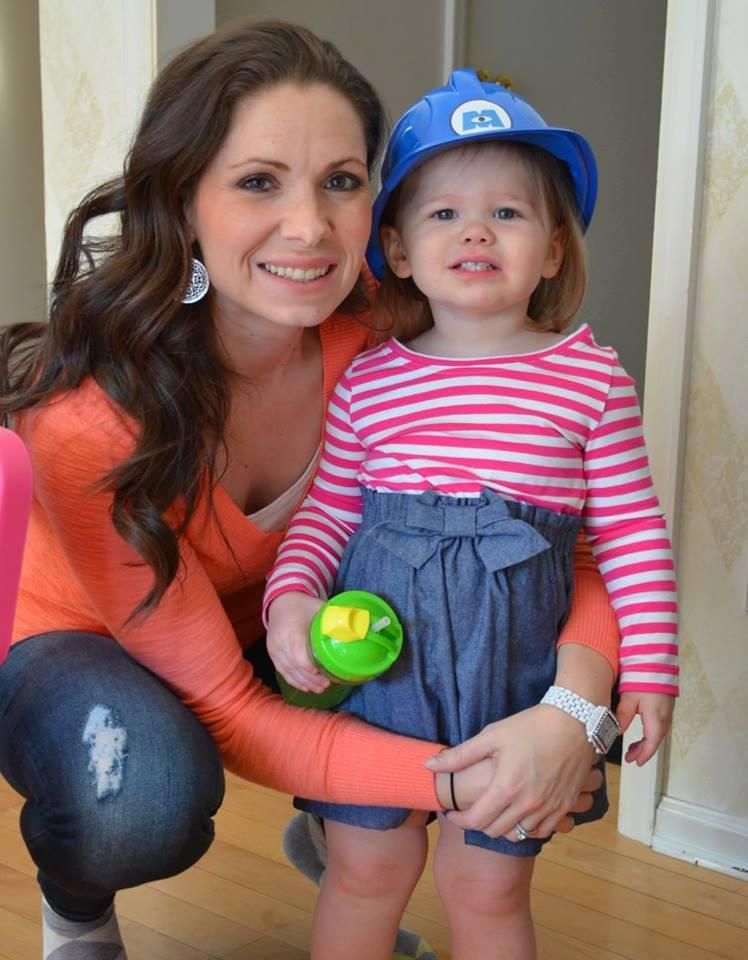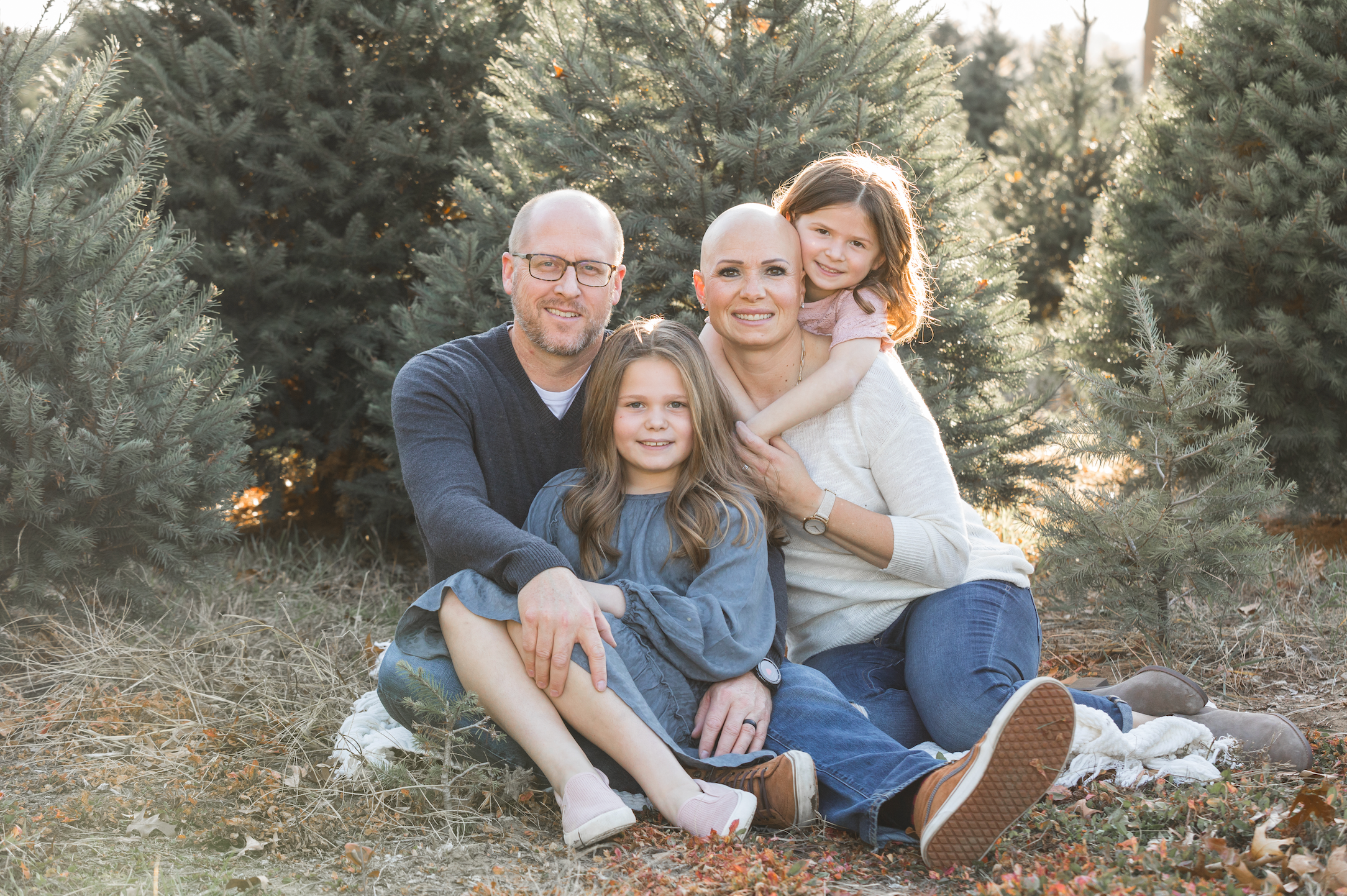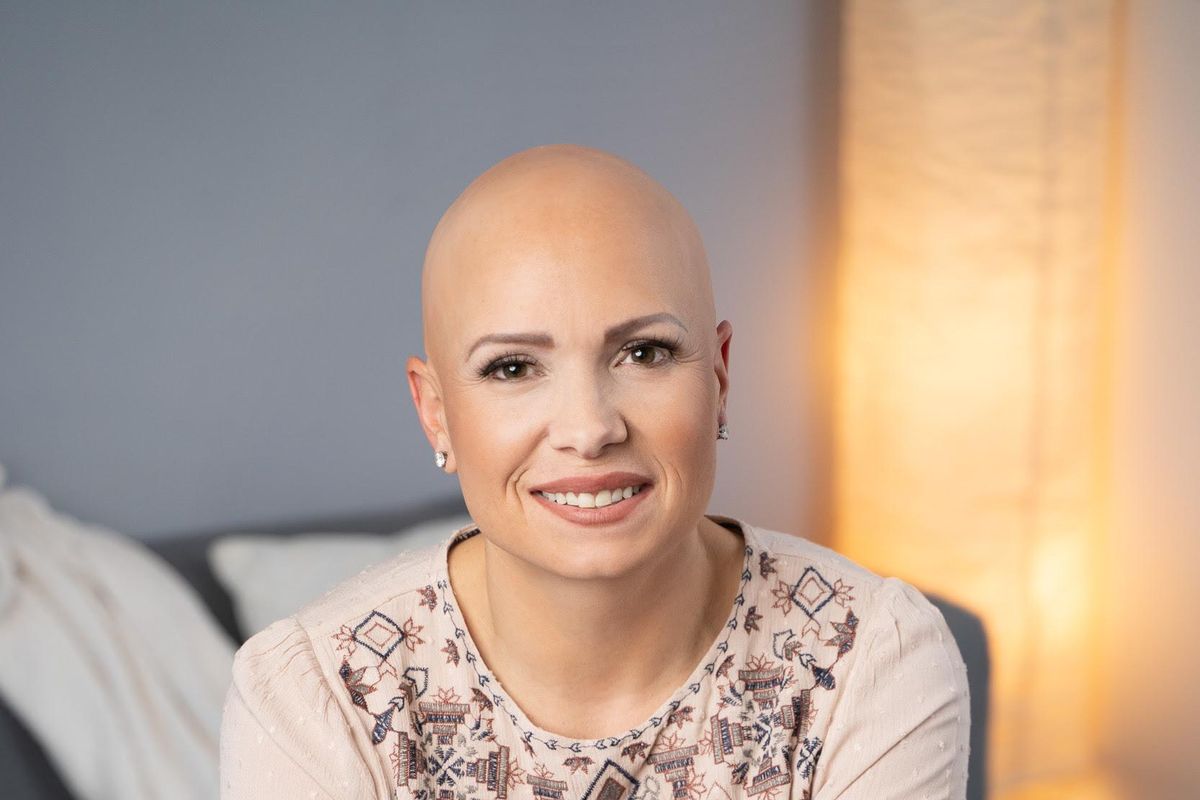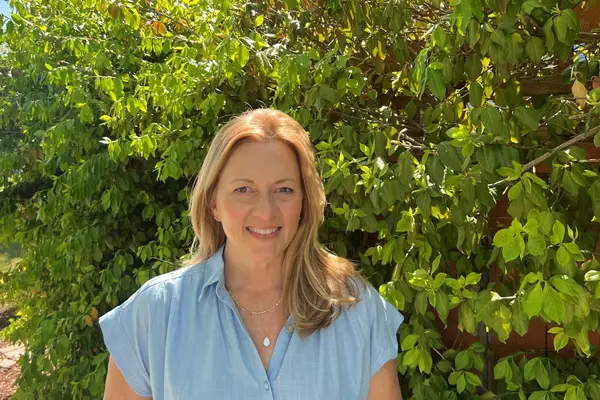As told to Liz Sauchelli
As the elevator descended, my nerves got worse with every floor we passed. But I knew I was ready. Four years after I was diagnosed with alopecia, I was about to appear in public for the first time without a hat, head covering or wig. I was at the National Alopecia Areata Foundation conference in Seattle, and it seemed like there was no better time to do it than when I would be surrounded by people who were going through the same thing I was.
After that moment, I never looked back. It was an incredible step in my years long journey with alopecia.
I started noticing my hair loss four months after my youngest was born. At first, I thought it was just postpartum shedding. It seemed a little excessive, but I didn't become concerned until November 2015, when we took a family photograph. My hair was incredibly thin. A week and a half later, it started to fall out in clumps. I stood in the shower with my hands full of hair, sobbing. By the second week of December, it was 90% gone.
During this time, I consulted experts. I visited numerous dermatologists who would prescribe topical creams and weekly injections to stimulate hair growth. Nothing worked. I wore headbands, hats and pulled my hair up, using makeup to fill in the bald patches that would appear. Eventually, I got a wig, which made me more comfortable.
I'm very blessed to have a husband who loves me unconditionally, but he didn't fully understand what I was going through. He kept saying, "McKenna, it's just hair, it's just hair." But sometimes I'd want to shout, "It's more than hair, it's my identity." It's one of the reasons I had trouble accepting what was happening at first.
I didn't realize how much I relied on my long, thick, hair to determine who I was until it was gone. After it fell out, I couldn't look at myself in the mirror and wouldn't even see my parents without a hat on. I used to have to plan my weeks and nights around washing and drying my hair because it took so long. With each strand that fell out, I felt my identity falling away with it.

Reitz with her daughter, Karsen, in 2014.
My mom understood how deeply this affected me. After my diagnosis, she would say "McKenna, I don't know how you're waking up every day." And I'd reply, "There's no other choice. I have a three-year-old daughter who's watching every step that I take. I have a five-month-old." I knew I couldn't cry in front of my then-three-year-old especially. I had to show strength because alopecia is genetic. I kept thinking, What if this happens to my daughters? I needed them to understand that if it does happen to them, they could get through it, just like they witnessed their mom do.
I grew up knowing the values of hard work, commitment and challenges. I learned that you must be resilient. It was that resilience I relied on when I hit low points. There were definitely days I would come home from work as an AP psychology teacher and crawl into bed, but those moments didn't last for long. I still had responsibilities. I was still a mom. I was still a wife. I needed to take care of my family.
Friends who saw photographs of me — or strangers I saw in the grocery store — asked me if I had cancer. They offered to pray for me, which made me feel worse. That's when I decided to be upfront with everyone about what I was going through and accept that my alopecia was here to stay.
For months, I had been focused on finding a way to make my hair grow back. When I began to accept that it wasn't going to, I stopped all treatments. I no longer viewed alopecia as a problem that needed to be fixed: It was my mindset about alopecia that was the problem and — more importantly — it was something I knew I could fix.
One of the hardest things to grapple with was the why. I'd ask, "Why is this happening to me?" There was no explanation. With a physical ailment, there's usually an explanation: You have a virus, you have bacteria, you have something that can be treated. But with alopecia there's nothing: It's just an autoimmune disease that attacks your hair follicles and says, "We don't like them" and doesn't allow hair to grow.
Social media, TV and society all subconsciously tell us how we should look, how we should act. I needed to show them we have the power to define beauty and shouldn't let other people decide that for us. For me, bald is now beautiful. I haven't worn a wig in more than a year. I don't hesitate leaving my house without a hat, having my picture taken or looking in the mirror.

The Reitz family in 2020. (Photo/Tracy Disbrow)
Becoming involved in advocacy work has also been a great outlet. I'm able to focus on educating people about alopecia. Now, when someone in the grocery store approaches me, I reply, "No, thankfully, I don't have cancer. Please pray for those who do. I have an autoimmune disease called alopecia."
I have the power to change people's perceptions about a disease that impacts nearly 7 million people in the United States. My mom always said to me, "God gives the strongest people the toughest challenges." I'm so honored and blessed that I was given this condition because it has allowed me this beautiful perspective. It's made me understand that every person has their own story. Mine just happens to be visible.
- Wigging Out: Tips for Making Your Wig Look Natural - HealthyWomen ›
- What to Know About Hair Loss Treatments for Women ... ›
- Women With Alopecia Don't Have to Live Without Brows and Lashes ... ›
- Alopecia Areata: Losing Your Hair? Don’t Despair - HealthyWomen ›






